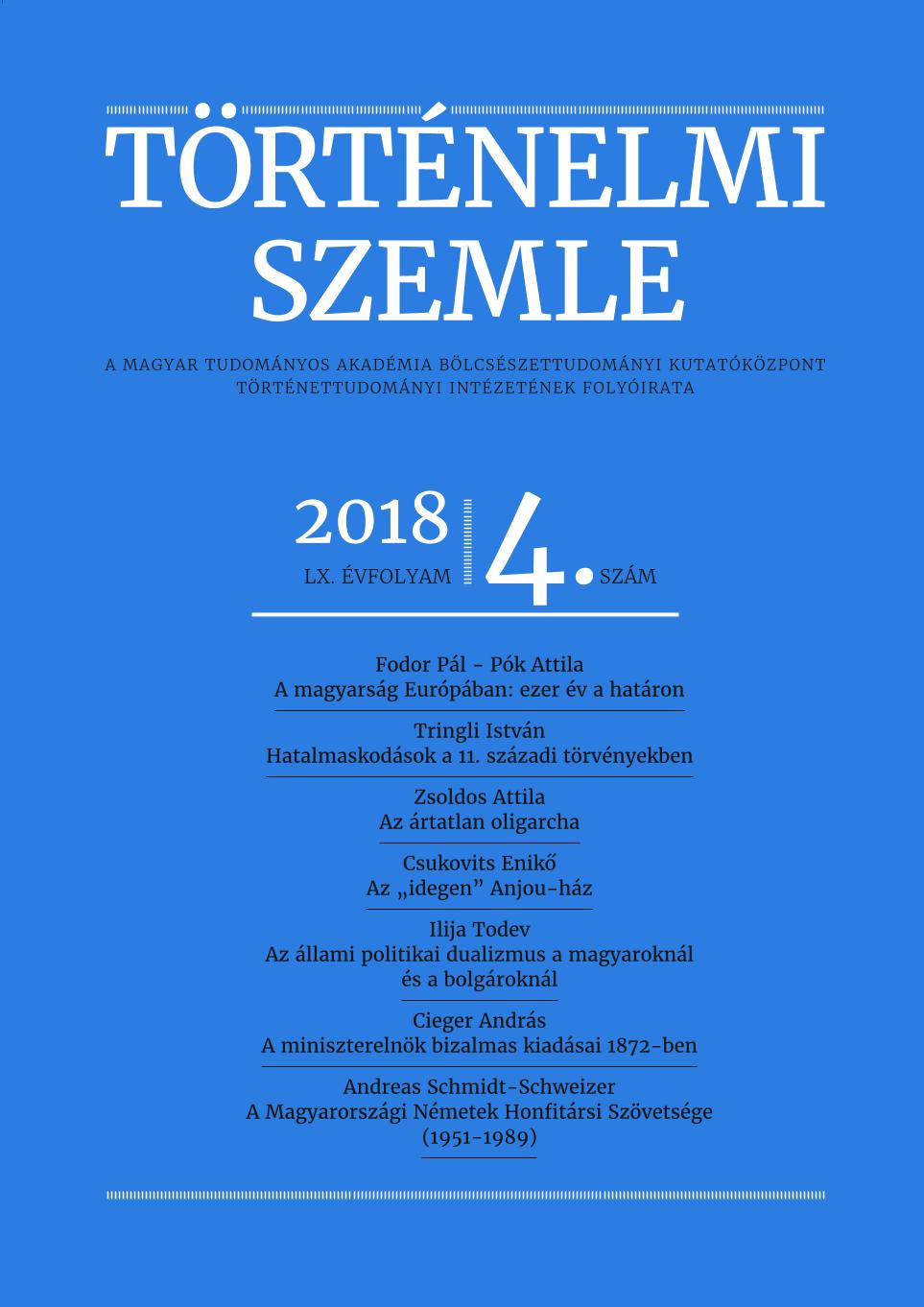Az állami-politikai dualizmus eszméje a magyaroknál és a bolgároknál a 19. század harmadik negyedében – hasonlóságok és különbségek
The idea of dualism in the Bulgarian and Hungarian political thinking in the second half of the 19th century – similarities and differences
Author(s): Ilia TodevSubject(s): 19th Century
Published by: Magyar Tudományos Akadémia Bölcsészettudományi Kutatóközpont Történettudományi Intézet
Keywords: evolutionists; Ottoman Empire; Bulgarian Vazrazhdane; dualism; exarchate; Austria-Hungary; appeasement; Kisimov; Chomakov; memorand
Summary/Abstract: The Austrian-Hungarian appeasement (Ausgleich) in 1867 did not remain without response. The negotiations were not only followed by the Irish, demanding Home Rule, but also influenced the national movements of the Balkan Peninsula. The Bulgarians elaborated several plans to reach home rule within the Ottoman Empire. Beside the unsuccessful negotiations of the evolutionists (the opponents of the radicals, like Karavelov) with the Patriarchate to increase Bulgarian presence in the synod and to consider the interests of the Bulgarian nation (the 8 demands in 1861), and the failed cooperation plans with the neighbours (’First’ Balkan League in 1867) the Bulgarians also came up with the plan of the restoration of the Bulgarian state within the Ottoman Empire based on the dualistic idea, having the Sultan as the Tsar of Bulgaria. This idea was definitely influenced by the Hungarian events. The article compares the political situation, the reality of the idea and the similarities and differences between the Hungarian achievements and the Bulgarian memorand. Though this plan also failed (and the evolutionists considered it merely as a plan of the pro-Russian party to divide the Bulgarian movement into factions), finally, bearing the concensus of the Porte, the Exarchate was established, which possessed numerous state functions.
Journal: Történelmi Szemle
- Issue Year: 2018
- Issue No: 04
- Page Range: 625-637
- Page Count: 13
- Language: Hungarian

